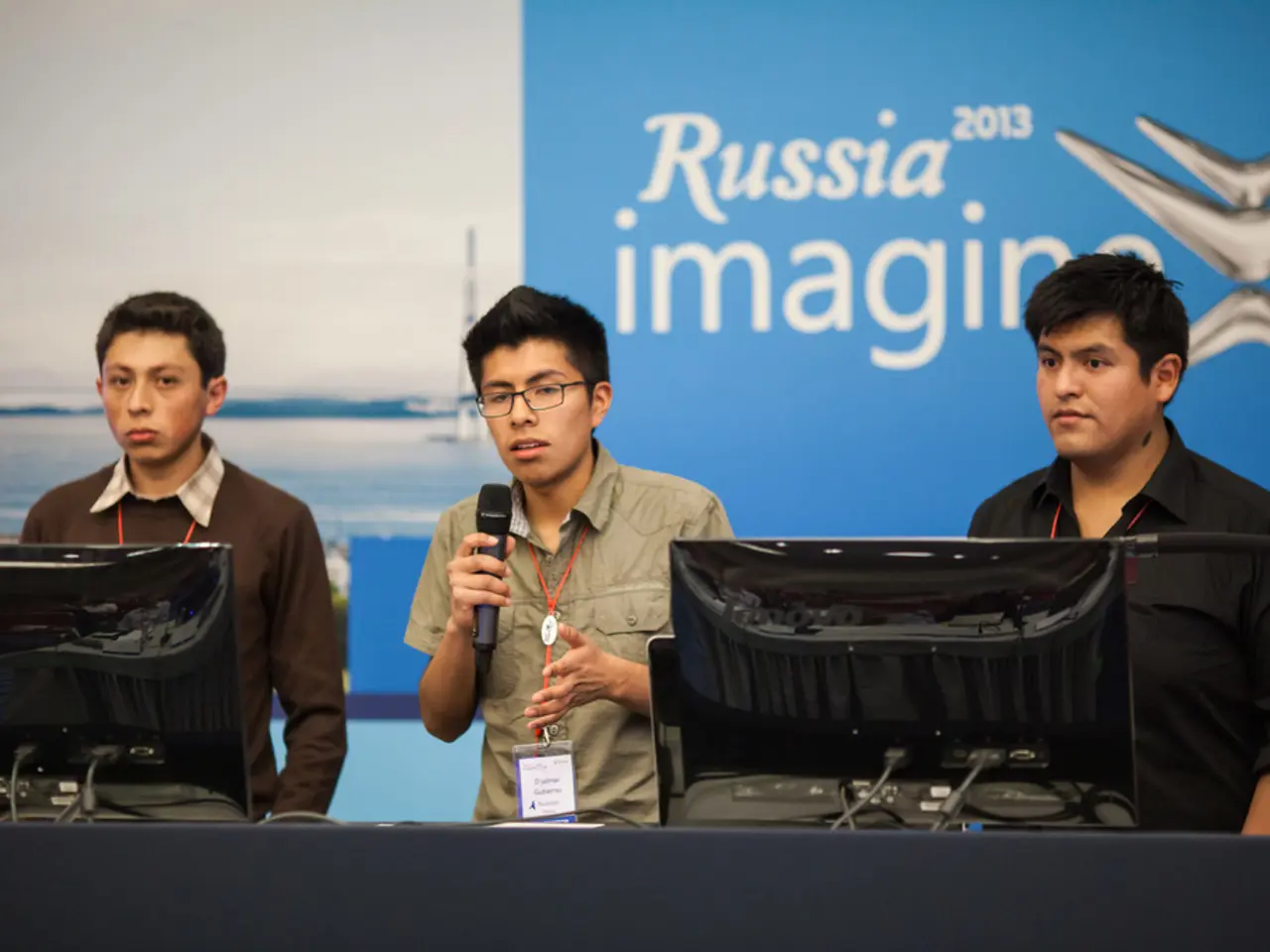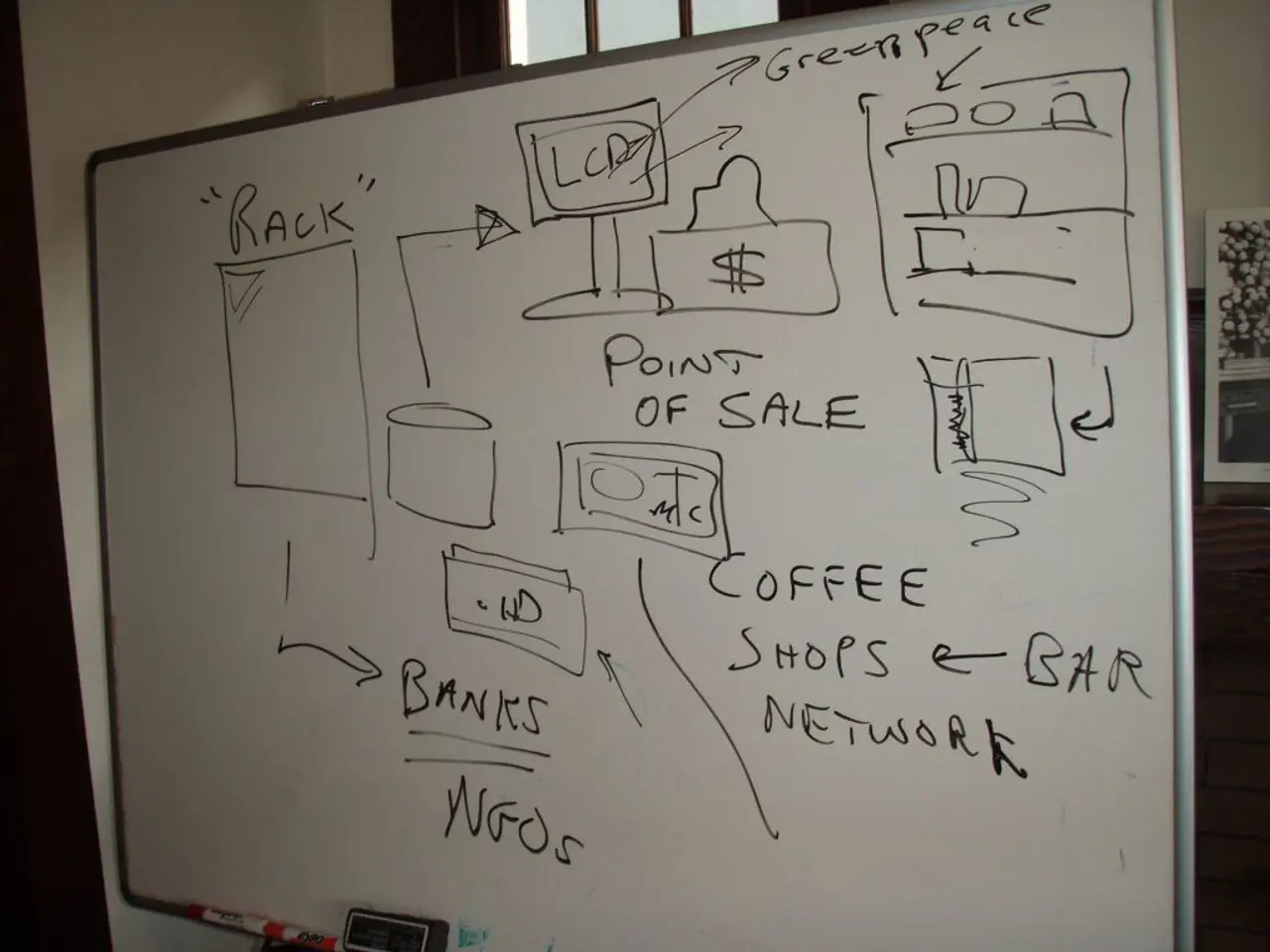Expansion of Electric Vehicle Charging Stations in Osnabrück
Q1 Expands EV Charging Infrastructure in Osnabrück and Beyond
Q1 Energie AG, a German energy provider, is making strides in electromobility by expanding its charging infrastructure across the country and beyond. In Osnabrück, Q1 has already established over 120 charging points at more than 40 locations, with plans to meet the evolving needs of car drivers through collaborative projects.
One such project involves Autostrom plus GmbH, a company specialising in tank installations and electromobility, which will contribute to Q1's expansion. The partnership aims to construct 99 new fast-charging parks along German highways nationwide.
In the heart of Osnabrück, a Q1 Hypercharger with 150 kW power is now supplying the WSO fleet, employees, and the public at two charging points. WSO Managing Director, Axel Mauersberger, is a strong advocate for the expansion of the city's charging infrastructure, with more than 10 electric vehicles in the WSO fleet.
Q1's vision extends beyond the traditional fuel station business, as CEO Frederick Beckmann explains. The company's future mobility concept prioritises electromobility, encompassing a comprehensive charging infrastructure for employers, hoteliers, and operators of public parking lots.
Customers at Q1 charging stations can use a wide acceptance of charging cards and mobile payment solutions such as the Q1 Card, ENBW Mobility+ App, Shell Recharge, EWE GO, DKV Mobility, and many other providers. For added convenience, a credit card terminal for payment with debit or credit cards will be retrofitted for WSO in the future.
As for Q1's expansion plans beyond Osnabrück and Germany, while there is no direct mention of specific projects targeting locations outside these regions, the broader EV charging landscape in 2025 paints an optimistic picture.
Significant growth is evident in Europe, with Blink Charging Co. expanding its EV charging infrastructure in Belgium. They currently operate 88 Blink chargers in Antwerp and Mechelen and plan to double this number to at least 176 chargers by the end of 2025, focusing on both underground and above-ground stations in multi-tenant and public environments.
Advanced charging standards like the megawatt charging standard (MCS) are also being rolled out, allowing ultra-fast charging up to 3.75 MW, which will accelerate charging times especially for heavy-duty vehicles. Smart charging and Vehicle-to-Grid (V2G) technology are also advancing, indicating a general trend toward more efficient, intelligent charging infrastructure expanding across Europe and beyond.
Outside Europe, countries like China lead massive expansions, aiming to support 20 million EVs by 2025 with a large increase in public DC fast chargers. Other Asian countries like Indonesia and Malaysia are rapidly growing their networks from a smaller base.
Notably, in North America, Lucid Air EVs will gain access to Tesla's extensive Supercharger network as of July 31, 2025, representing a significant expansion of charging infrastructure accessibility beyond traditional proprietary networks.
In conclusion, while specific Q1 2025 projects exclusively beyond Osnabrück and Germany were not found, the trend indicates accelerated expansion of EV charging infrastructure across Europe and globally, with emphasis on smart, fast, and accessible charging solutions.
Technology plays a crucial role in Q1 Energie AG's vision for expansion, with efforts to implement smart charging infrastructure and advancements like the megawatt charging standard (MCS) to accelerate charging times. Furthermore, partnerships with companies specializing in electromobility indicate Q1's commitment to embracing and improving technology in the realm of electromobility.




